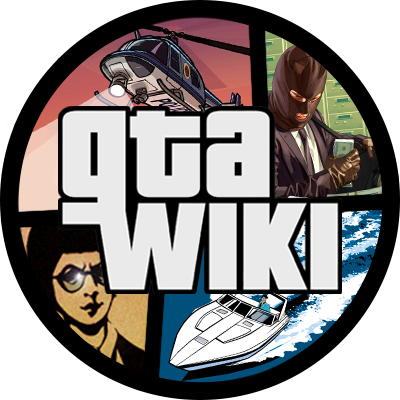Custom radio stations are user-defined radio channels that allows the player to play their own music tracks in GTA games.
Overview
The feature was primarily exclusive to PC versions, initially taking into consideration the ability for PC hard drives to better support user tracks; however, the feature is adopted to a limited scale on two console platforms. The PC port of Grand Theft Auto III was the first game to include a custom radio station, followed by PC ports of Grand Theft Auto: Vice City, Grand Theft Auto: San Andreas, Grand Theft Auto IV and Grand Theft Auto V, the Xbox versions of GTA III, GTA Vice City and GTA San Andreas, and as well the iOS version of Grand Theft Auto: Chinatown Wars.
The station assumes various names, becoming increasingly immersed in the games' settings in the years since GTA III. First known as the "MP3 Player" in GTA III and GTA Vice City, the station was renamed as "User Track Player" in GTA San Andreas, followed by "Independence FM" in GTA IV and GTA Chinatown Wars, and then "Self Radio" in GTA V. In the 10th Anniversary Edition of Grand Theft Auto: Vice City, the custom radio station is known as "Tape Deck".
Description
Inserting custom music into the stations consists simply of placing music files into a designated folder. Initially, GTA III and GTA Vice City requires the user place music files in the "mp3" folder located within the primary game folder (i.e. Program Files\Rockstar Games\Grand Theft Auto III\mp3). For GTA San Andreas, shortcuts of music files/folders may also be placed in a "User Tracks" folder, located in its GTA "User Files" folders within My Documents. GTA IV follows GTA San Andreas' system, designating a "User Music" folder in its My Documents "User Files" folder for custom music.
Methods for inserting user-defined tracks in console ports are more varied. For the Xbox version, a CD must be installed into the console's hard drive. For the iPhone version of GTA Chinatown Wars, players simply create an iTunes playlist titled "GTA", assigning the playlist to the game.
The manner in which custom music is played in the stations varies game by game. In GTA III and GTA Vice City, music tracks will be played in alphabetical order according to their file names and cannot be skipped. GTA San Andreas, however, offers the option of playing the music files in sequential order, on random, or within a rudimentary radio station that only plays commercials between music tracks. Players are also allowed to immediately skip to the next track if the station is not set as a radio station. To ensure recently inserted tracks are sure to be played, GTA San Andreas requires the players "scan" the music folder using the audio options for new music tracks. GTA San Andreas' radio station options are brought over to GTA IV & GTA V, where a DJ (Gary Sheen in IV, Cliff Lane & Andee in V) and imaging voices are added and appears between songs and commercials for the radio station option; players are still required to scan for new music files. The player is also given the additional option to play the previous track. GTA Chinatown Wars' Independence FM simply randomizes music within its playlist.
GTA III, GTA Vice City and GTA San Andreas have only been known to support .ogg and .mp3 music formats (as well as shortcuts to those types of files). GTA IV, however, extends file support to include .wma and .wav files. Songs to be played in GTA IV must also be free of any DRM restrictions. GTA V also allows song shortcuts to be put in the User Music folder, with the same file support as GTA IV. When playing a new track in the Xbox version of GTA San Andreas, the HUD specifically mentions the order of the track and the CD number (i.e. CD 14 Track 3).
Gallery
Logo of Independence FM in GTA IV and GTA Chinatown Wars. Logo of Self Radio in GTA V. |





